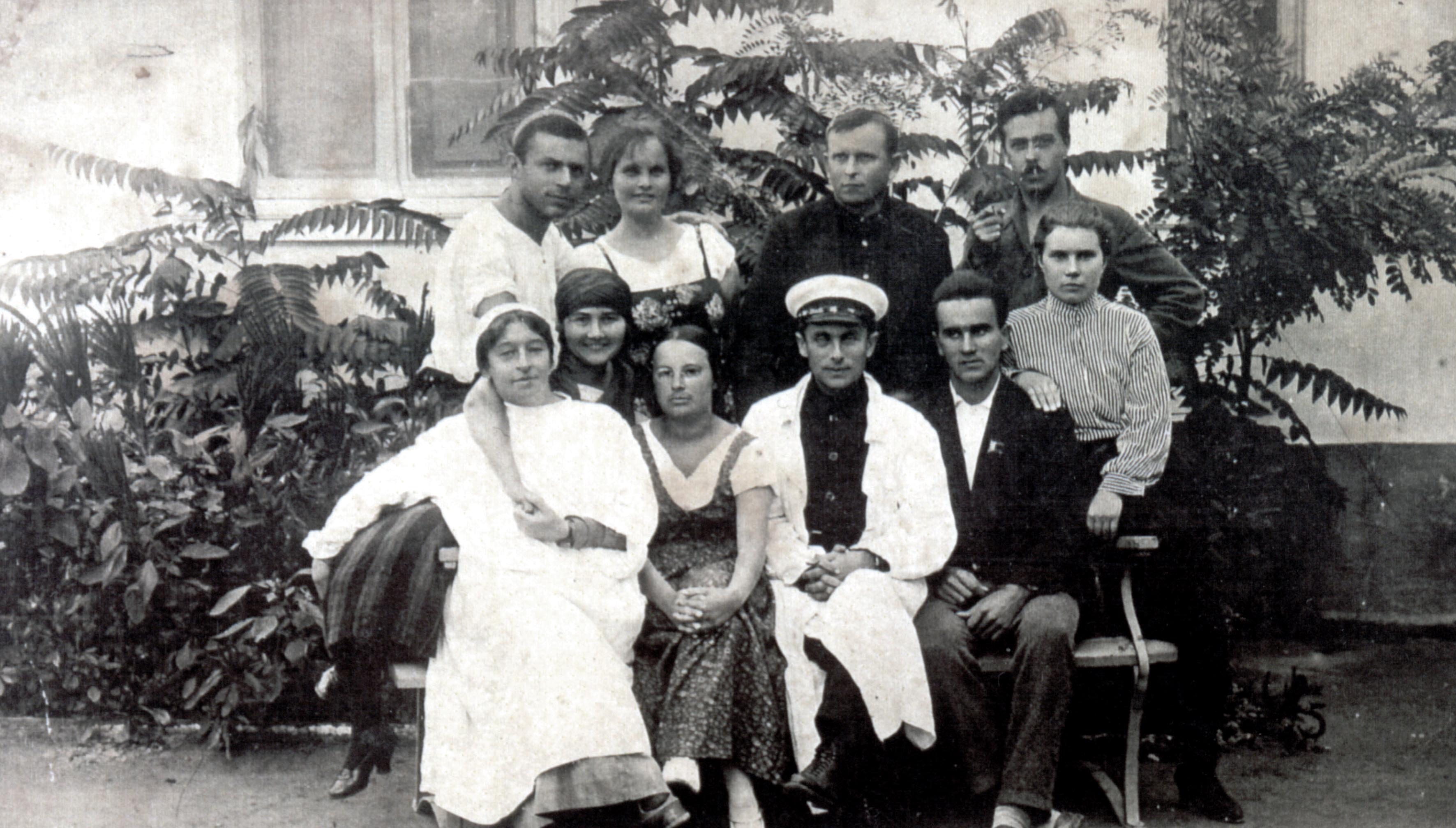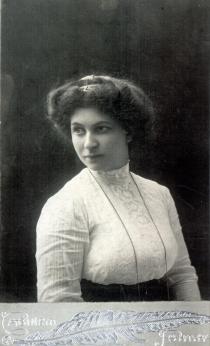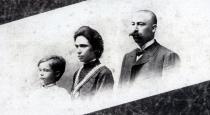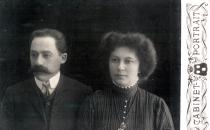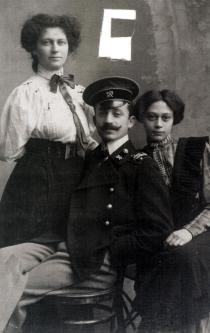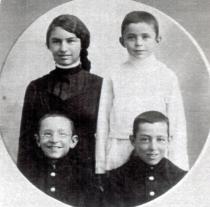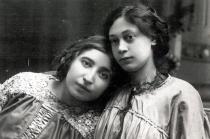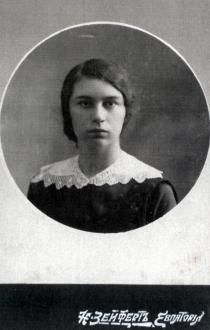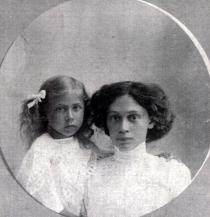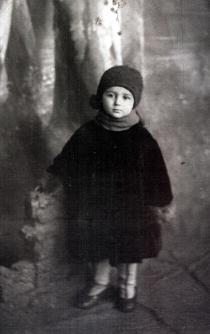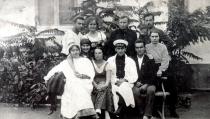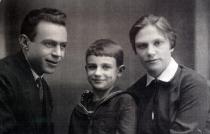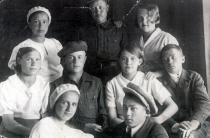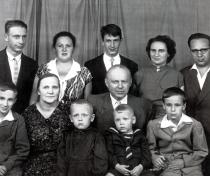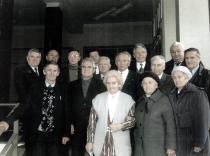My father Grigory Shwartz (on the left), photographed at recreation center for Party and Komsomol dignitaries in the Crimea. Photo made in early 1920s.
In 1922 my father finished a short-term training course and was sent to work at the Central Committee of the CPSU [Communist Party of the Soviet Union]. He became an economist at the department of employment for young people. He studied simultaneously at the evening department of the Institute of public economy named after Plekhanov.
The first years in Moscow were very difficult. Although my father worked in the Central Committee he received a small salary. Besides, my father didn't hold a high position. My mother didn't go to work for some time after I was born. However, my parents had bright memories about this period of life. It was the time of hope when they were young and full of ideas about construction of a new society expecting only good things in life. Shortly after I was born my mother entered a preparatory course at the institute of Public Economy. After finishing this course she became a student of the Institute. My parents loved each other dearly, but they never demonstrated their feelings - this wasn't decent in their circles. My father traveled a lot and my mother always missed him, but when he returned she just kissed him on his cheek asking him whether he managed to complete his task. My father was a cheerful and hot-tempered man. He grabbed me throwing me high to the ceiling tickling and kissing me.
Once my father got a ticket to a recreation center for governmental officials in the Caucasus. There were many young people resting there - revolution was the deed of the young and they held high official posts in the government of the country.
In 1928 my father joined an opposition [of Trotskiy/Zinoviev block 9 that had a different idea of further development of revolutionary directions and building of socialism in the country. My father was expelled from the Party and fired from work. My parents had hot discussions at home and sometimes my father's friends came in the evening. In some time my father acknowledged his mistakes in public and was restored at work. In 1929 he was promoted again and appointed as Human resources manager for public economy.
My father worked a lot, sometimes until late at night. Many higher officials had to work at night since this was the way Stalin worked and he might call anybody he needed at night.
Our happy life ended in 1934 when on 1 December Kirov was murdered in Leningrad giving a start to the first wave of Stalin's repression. On 17 December my father didn't come home from work. My father was arrested at the accusation in the coalition of a counterrevolutionary group in Leningrad that was in opposition to the Party. On the next day after the search my mother was expelled from the Party and fired from work declared to be the wife of a traitor supporting her husband in his anti-Soviet activities. NKVD authorities ordered her to leave Moscow within 3 days or else she was subject to administrative deportation. Many of my father's friends and colleagues were arrested and sent in exile.
My father was lucky, so to say. During this initial stage arrested people didn't get executed, as a rule. He was expelled from the Party and sent in administrative exile in Alekminsk of Yakutsk SSR, in 3000 km from Moscow.
In January 1940 the five-year term of my father's exile was over. He had a permission to leave the town, but his membership in the Party wasn't restored. Besides, he had no right to visit Moscow, Leningrad or other capitals of the Union Republics. We went to Simferopol in the Crimea.
